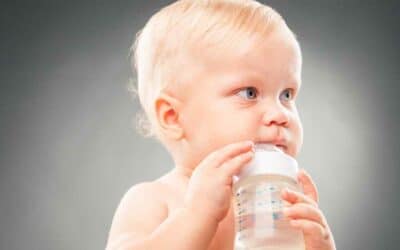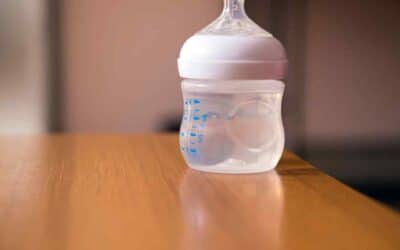Tooth decay is a primary dental concern worldwide and is still a massive problem in the country. The center for disease control says that 1 in every four adults in the country has untreated tooth decay, in which 46% of adults over 30 years old show signs of gum disease.
If left untreated, these oral problems can eventually lead to tooth loss. So, to prevent matters from worsening, most parts of the country’s municipal water system have specific quantities of fluoride mixed with their supplies. However, it has also led some people to worry about nursery water and its effect on children. Many even ask, “why does nursery water have fluoride?”
To answer this query, this article will dive into the basics of fluoridated water, its benefits, and its potential effects when mixed with infant formula.
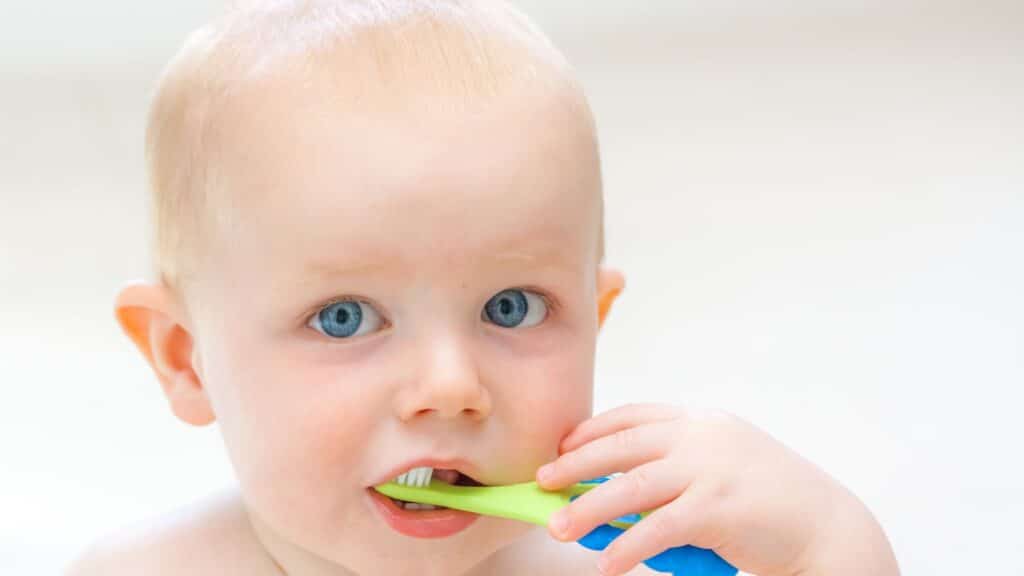
What is Fluoride?
Fluoridated water contains particular fluoride levels that aim to address tooth decay and other harmful contaminants that may cause adverse effects on a person’s health.
Fluoride is a naturally occurring mineral found in nature in varying amounts. It’s an effective way to address tooth decay, so manufacturers have added fluoride to their dental products to address growing dental and oral health concerns. Alternatively, it’s added to municipal water sources across the country as part of water fluoridation.
How Tooth Decay Happens
Tooth decay, otherwise known as dental caries or dental decay, is a primary health concern shared by millions of people globally.
Tooth decay occurs when bacteria create a sticky plaque on the teeth’ surface. When that happens, the bacteria will eat off the teeth’ surface, damaging it over time.
Tooth decay is common among children. So, you must understand how to address any remaining bacteria that may harm your baby’s teeth.
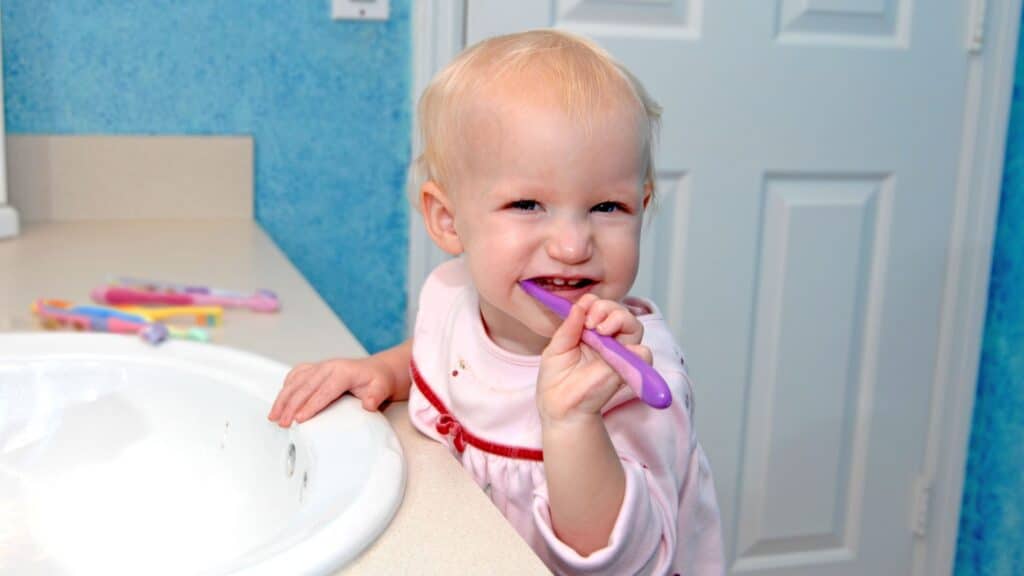
Benefits of Fluoridated Water
Shields Your Enamel
One of the primary benefits of fluoride intake is its ability to protect the tooth enamel against damage caused by acids. Particular liquids contain high amounts of acid that may cause the teeth’s enamel to deteriorate. Once that happens, the teeth will become more sensitive to your daily activities, such as drinking liquids or consuming liquids with high amounts of acids, like lemon juice or orange juice.
Unfortunately, people with susceptible permanent teeth can have an unpleasant experience. Dental products containing fluoride can help reduce your teeth’s sensitivity, especially when consuming fluoridated bottled water.
It provides Your Teeth with Minerals
As previously discussed, acids from the foods you consume can weaken your teeth’ structure. That’s because it eats up the mineral that makes up your teeth’s minerals. Once your teeth lose calcium and phosphorus, they can start to deteriorate and lose their health benefits.
Consuming fluoride helps revitalize the lost minerals back into your teeth. This process is called demineralization, which helps rebuild a person’s damaged teeth.
Protects Against Cavities and Tooth Decay
Bacteria and other contaminants exist in everyone’s mouth. When a person consumes sugar and starches, they activate these bacteria, which, in turn, produce acids that can be harmful to your health.
When consuming fluoridated tap water, you shield your teeth against cavities and decay. The American Dental Association believes that adding the right amount of fluoride to your daily routine ensures that your teeth remain healthy and protected.
Helps Save You Money
Everyone knows how expensive dental procedures can be. So, the best way to address such problems is to ensure that you take the correct fluoride levels for your teeth.
Besides tap water, there are other products with the right fluoride level to help maintain your teeth’ strength. There are also systemic fluorides that you can swallow. You can complete this treatment by drinking fluoride tap water or other products with the right amount of fluoride. You can also find systemic fluoride in dietary-formed supplements for optimal fluoride level intake.

Effective Ways to Protect Infants from Tooth Decay
Many parents and caregivers would agree that breast milk is still the best source of nutrients for babies. But for many parents, baby formula is also an excellent alternative. So, whether you prefer preparing infant formula or breast milk, it’s still crucial to learn a few ways to help protect your child’s dental health.
Learn How to Clean Your Baby’s Mouth
From birth for up to a year, you can gently wipe your baby’s gums with a clean baby washcloth to keep them clean. Once you notice that his first teeth are starting to grow, you can use a soft baby toothbrush to clean the teeth. It’s also best to use only a smear of fluoride toothpaste to add the right amount of fluoride.
Take the Infant Formula Out Once the Baby is Asleep
Never attempt to put your baby to sleep with a bottle or food. Doing so only exposes your baby to sugars, which only puts them at risk for developing tooth decay. Even more, letting your child sleep with a milk bottle will increase the chances of choking.
Never Use a Bottled Water or Sippy Cup as a Pacifier
It’s also not advisable to let them walk around or drink from one for long periods as it can only cause them to get exposed to high sugar levels. Meanwhile, if your child requests bottled water, it’s best only to fill it with water.

Check if the Water is Fluoridated
You can check the label of the bottled water packaging to see if it has the right amount of fluoride level. Your child may benefit from drinking fluoridated water as long as it’s taken in moderation. Meanwhile, if you get your tap water from a well or any other unregulated water source, it’s best to get the water sample tested to know if it has too much fluoride.
Limit Your Child’s Sweets
Although candies, cookies, and other sweets may sound like an excellent treat for babies, giving them too much may cause them to develop dental issues. So, it’s best to give them sweets sparingly so they won’t get stuck on their teeth.
Only Serve Juice During Meal Time
The American Dental Association doesn’t suggest juices for babies who have yet to reach six months. Instead, consider giving them dilute juices at 6 to 12 months. When diluting juices, you must only give at least 4 ounces daily. Meanwhile, you can increase the serving to 6 ounces per day once they reach between the ages of 1 to 6 years old.
Set an Appointment With the Dentist
Lastly, consider setting an appointment with the dentist. If there’s anything that concerns you about your child’s dental health, then speaking with an expert is the best choice. You may find a pediatric dentist in your area or see a pediatrician to check your child’s mouth and apply fluoride to help you reach the optimal fluoride level.
What Happens When Babies Get Exposed to Too Much Fluoride?
Like everything else, too much fluoride has disadvantages, especially for babies. Although fluoride has a lot of benefits, using bottled water to mix with baby formula may be too much for your baby’s growing teeth. When exposed to added fluoride that’s no longer necessary, your child may be at risk of developing mild fluorosis. But what is fluorosis, and when does it occur?
Introduction to Mild Fluorosis
Dental fluorosis is a condition that alters the appearance of the tooth’s enamel. Most cases of dental fluorosis are either mild or very mild and often appear as white lines or markings found on the tooth’s enamel.
Dental fluorosis occurs when a person consumes too much fluoride over a period when the teeth are starting to form but have yet to appear in the mouth. It often occurs during the first eight years of a person’s life and doesn’t cause pain.
To reduce your child’s risk of developing fluorosis, you need to ensure that your child doesn’t ingest mouth rinse or toothpaste, which may contain excessive amounts of fluoride added to its content. You may also contact a dental health professional to see which bottled water is safe for your infant’s baby formula.
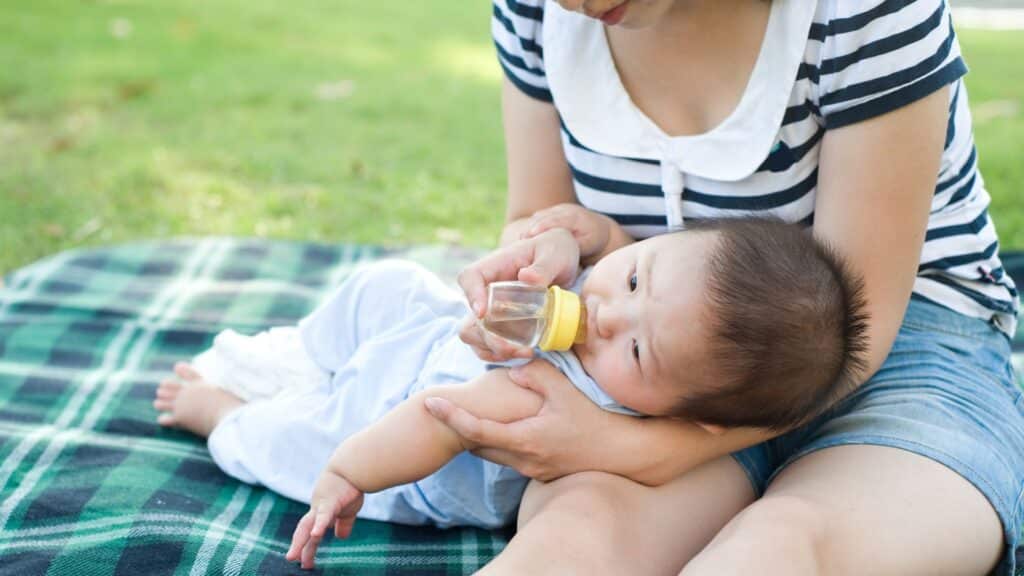
Alternative Water Sources for Babies
Fortunately, for parents worried about water fluoridation in their municipal water systems, you can choose from plenty of options other than tap water.
Fluoridated Water
One alternative option that you can use for tap water is fluoridated water. Compared to other water sources, fluoridated water has a higher added fluoride level and is almost comparable with tap water that underwent water fluoridation.
Most baby formulas already contain the right amount of added fluoride that suits your baby’s needs. So, it’s no longer necessary to provide your child with more than enough minerals that his body needs.
Well Water
Well water is another option to consider when missing baby formula. Although it could be better compared to purified water, it can still mix baby formula, especially if you don’t have any other sources available.
However, you need to remember that well water and other groundwater sources didn’t go through any strenuous water filtration sources. So, there’s a high chance that the water supply is already contaminated with harmful viruses and bacteria, which may need to pass the qualifications of health and human services.
Bottled Water
Bottled water may hold the highest water safety levels compared to other water sources on the list, making it the best choice as you prepare infant formula. Bottled water comes in four primary options: purified water, distilled water, deionized water, and demineralized water.
- Purified water. Purified water is typically produced via reverse osmosis, ion exchange, or a fusion of both processes. It contains no added substances and can be an excellent choice for infant formulas.
- Distilled water. Distilled water comes from the steam from boiling water that’s been cooled until it returns to its liquid state. Drinking distilled water is highly advisable for those worried about any remaining water from the water. It’s also ideal for preparing powdered formula for your baby’s drink.
- Deionized water. Deionized water refers to the removal of ions. Compared to the distillation process, deionization focuses on removing mineral and other organic contaminants ions that hold an electrical charge.
- Demineralized water. Demineralized water is a simpler form of water purification which involves a process that removes salts and minerals from the water. Unlike distilled water, it only requires low salt content and conductivity, making it an excellent choice for preparing infant formula.
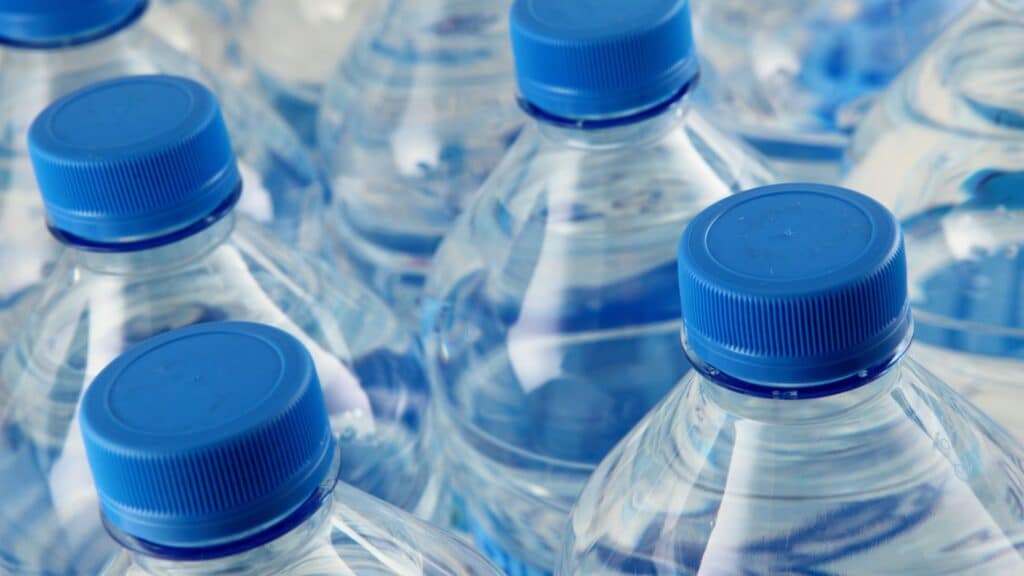
Choosing the Right Bottled Water
If you’re in an area with barely any source of drinking water, then the best option that you can choose is to buy bottled distilled water. But with all the various products in the market today, how do you know which is the best for baby formula?
Fortunately, there are various nursery water products these days that are ideal for mixing baby formula. Besides nursery water specially marketed for babies, you can also choose products labeled as purified water, distilled water, or demineralized water for your infant’s baby formula.
According to the law, all distilled water bottle products should pass the Food and Drug Administration’s standards before they get sold.
When Should You Boil Water
Reading the label is highly advisable when preparing ready-to-feed formula. If you read the print on most infant formula products today, you’ll most likely see a statement advising parents and caregivers alike to seek advice from healthcare to know whether or not you need to boil the water.
The AAP suggests parents and caregivers use drinking water from a reliable source when mixing their baby’s formula. If you’re worried about the water you’re using, it’s best to boil the water for a minute to remove contaminants.
What to Do When You Live In An Area Where Water is Not Fluoridated
Although most areas in the country undergo water fluoridation, there are times when specific areas don’t have access to the said water system. So, if your area’s municipal water still needs to be fluoridated, it’s best to coordinate with the local water utility agency.
Meanwhile, if you’re using well water instead of distilled water when mixing with formula, you should speak with your dentist about the potential risk for cavities. Your doctor may recommend having added fluoride to prevent the chances of developing tooth decay.
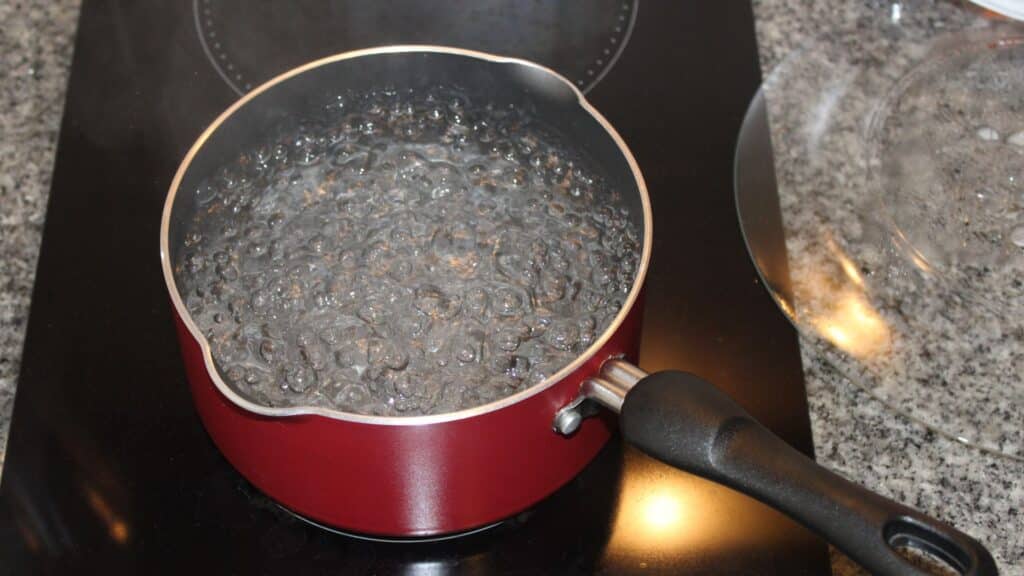
Conclusion
Choosing only the best waster is essential for your baby’s development. So, it’s best to speak with your doctor to learn a few ways to care for your baby’s teeth. Since water sources and the quality can vary depending on the area, you must ensure that you only use the best quality water available.
Also, remember to read the label when mixing baby formula with distilled water. Having too much water mixed with the formula can affect the nutrients that your baby takes. Thus, causing a slow growth and development during his infant stage.
Although fluoride has a lot of benefits, excessive intake can cause various health issues, including fluorosis. So, always be mindful of the added fluoride so that you can make the most out of it.
Did this article help you? If it did, please comment down below if you have a question.

